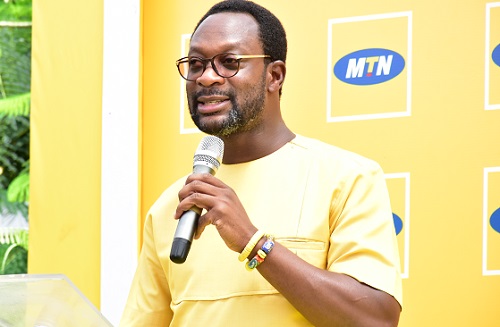Why it’s unfair for gov’t to break market share and ‘seeming’ MTN monopoly
Hold on, hold on….just indulge me for second.
Now almost about three decades ago, the only network provider in the country was Ghana Telecom and the mobile carrier, One Touch. It was more difficult to get a sim card for this network than it was to undertake heart transplant between two ants. You had to know someone who knew someone that knew another who knows you, before you could get a sim, and it wasn’t cheap. Expensive will be an understatement because those prices were extortionate.
Along the line, another provider comes into the market and makes sim cards more accessible and averagely affordable to those who could afford. All the while, Ghana telecom/Onetouch prices were still as expensive as it could be. In the long run, the new market breakers caught up with the market share that the first market breakers had.
Over the years and having a good standing in the telecom sector, the new market breakers then sells their entity to MTN.
Now MTN, undertakes one of the most vigorous investments in infrastructure of their telecoms and the acquisition of spectrums at ‘questionable’ cost from the government. Although these costs were high, they undertook these development which allowed them to cover large areas, and provide better service to their customers.
MTN also diversified and started to offer mobile money services to their customers. But the truth is, as MTN had the largest market share mobile network carriers, and mind you this was due to their investment, it became almost automatic that they will have the largest revenue from these transactions.
Let’s go back a bit.
Now before the sale GT/Onetouch to Vodafone, the company was very much ‘unprofitable.’ Vodafone had to undertake aggressive structural reforms and even reduce the size of the workforce in order to make the company operate efficiently. Some will say it is a typical sign for government-owned companies not to have the right number of personnel to match the duties required in the company. An instance is TOR. Let’s stay on track.
All the while, GT/Onetouch had not been investing in infrastructure and equipment as aggressively as MTN. This meant that their service will be unmatched (in the negative sense) compared to MTN. GT/Onetouch lost a perfect opportunity to have been in the position that MTN now is, by selling sim at unreasonable prices and engaging in inefficient running of their organisation at the time.
But what really is this about?
In my opinion (and I may be wrong), government has about 30% shares in Vodafone, with almost zero, if not zero in MTN. A larger market share for MTN means a lower income for government. The onous therfore, lies on government to see how this gap could be bridged. But the approach is certainly not right.
What government fails to acknowledge is that, whereas the Ghanaian owns a direct share in MTN (as was the case when MTN had to sell some shares during its 4G acquisition), the Ghanaian does not have direct shares in Vodafone but only through the government. Vodafone did not offer shares/IPOs because the government already had enough shares to be owned by Ghanaians before a company operates in 4G as required.
Now, the advantage of that of MTN is that, the Ghanaian gets the benefits directly, which allows him to improve his economic standing such as is the case during dividend payments. By ‘forcefully’ reducing the market share of MTN, the government indirectly reduces the economic benefits to the citizen. This certainly becomes problematic of we are indeed wanting the citizens gain economic freedom.
But if the government still tax the revenue of MTN, why is it so scared of a company that has invested so much in the space it operates, when it was not the first to start operations? Should the government be the one to ‘force’ an equal market share or should it be the other telecom companies to invest in infrastructure and technology to catch up in this open market ours?



